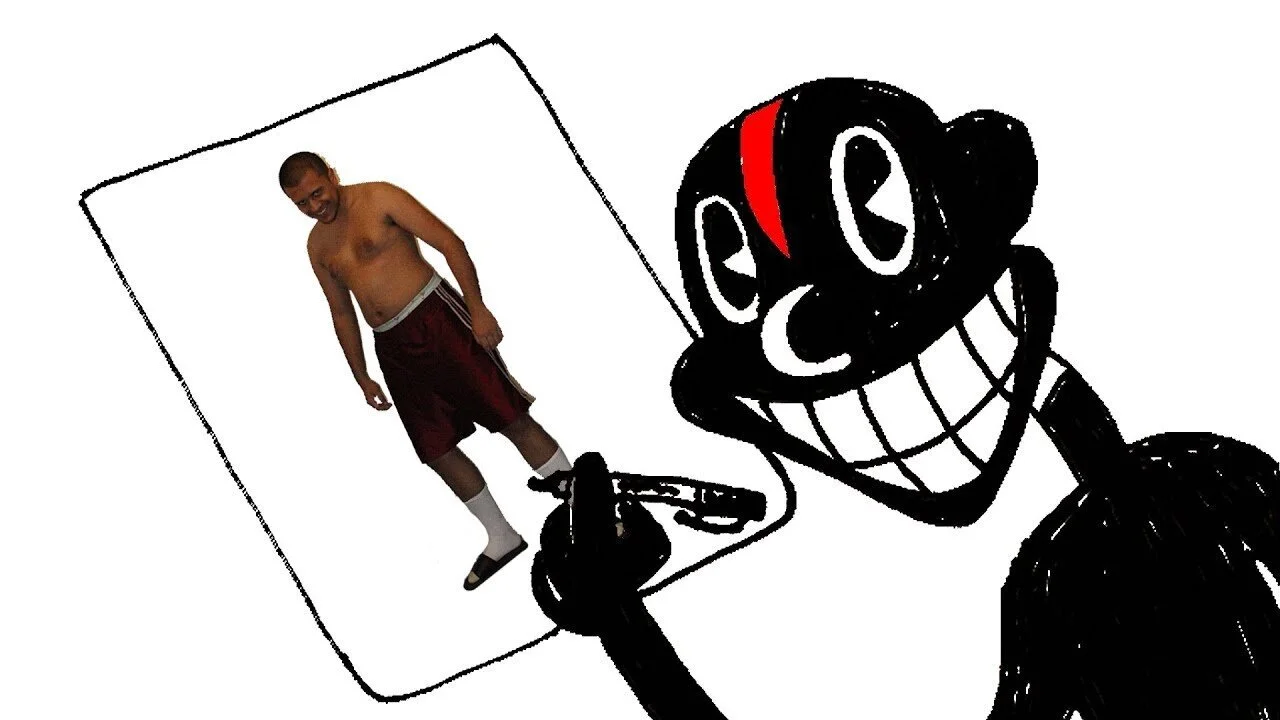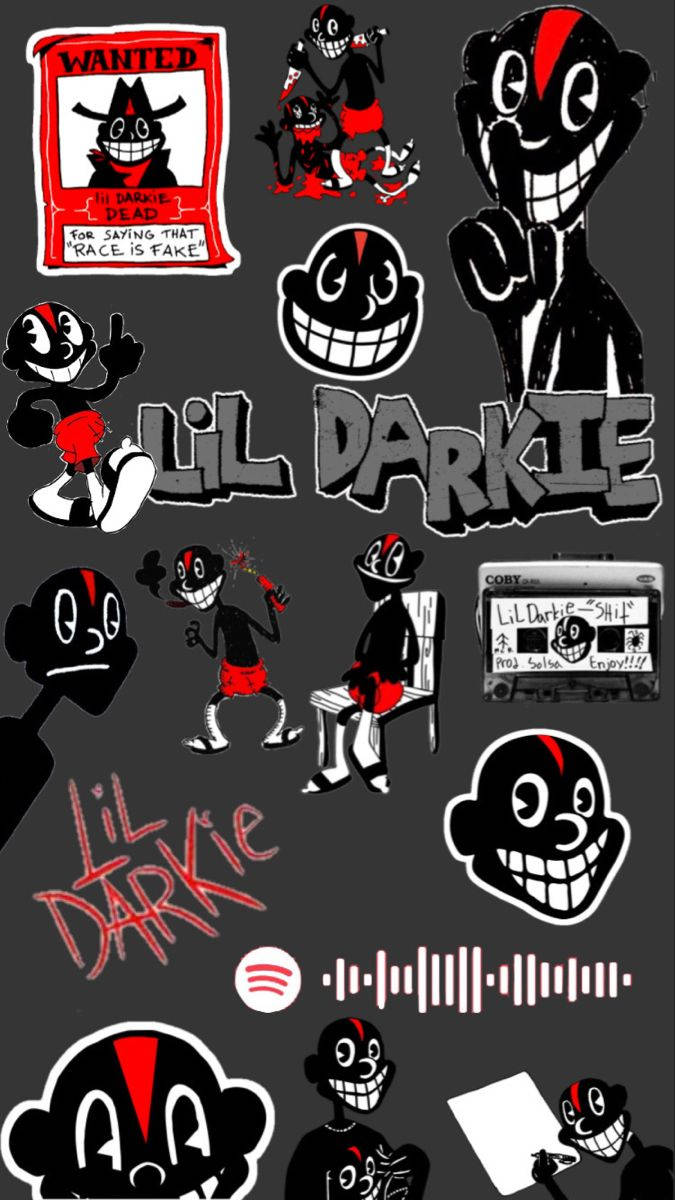Is it possible to separate the art from the artist, especially when the artist in question is Lil Darkie, a figure who deliberately courts controversy? Navigating the world of Lil Darkie means confronting uncomfortable truths, grappling with potentially offensive language, and dissecting the complex interplay between artistic expression and social responsibility.
Born Joshua Jagan Hamilton in Long Beach, California, on October 6, 1998, Lil Darkie, also known by his former persona, Brahman, has cultivated a unique brand of provocative music and art. His rise to prominence in the music scene, particularly after the release of his song "Holocaust" in 2019, has been marked by both fervent adoration and intense criticism. He is a visual and recording artist who creates music and art as a cartoon character. His work, often characterized by raw lyrics, challenging themes, and a distinctive visual aesthetic, has cemented his status as a notable and polarizing figure.
| Category | Details |
|---|---|
| Real Name | Joshua Jagan Hamilton |
| Born | October 6, 1998 (age 25) |
| Birthplace | Long Beach, California, USA |
| Nationality | American |
| Known for | Music and art |
| Genres | Hip hop, experimental hip hop, alternative hip hop |
| Musical Career Started | 2015 |
| Former Persona | Brahman (2015-2016) |
| Religion | Hindu |
| Sexuality | Bi-sexual |
| Notable Songs | "Holocaust," "GENOCIDE," "HAHA" |
| Influences | Influenced by a diverse range of artists and cultural elements, with his style evolving constantly. |
| Controversies | Use of slurs, accusations of historical erasure, cultural appropriation |
| Website (Example) | Lil Darkie YouTube Channel |
The questions surrounding Lil Darkie arent easily answered. He started in 2015 at 17, as Brahman, which the name originated from a hindu concept of the same name. He released his debut album on July 31, 2016. Many who've discovered him are drawn to his raw energy and unconventional approach. He is known for his raw and unapologetic approach to discussing race, identity, and societal issues. However, his music also prompts a critical examination of his artistic choices. His lyrics delve into complex themes with explicit language. His producer reclaiming native stuff and he himself reclaim slurs which made him the subject of debate, sparking discussions about cultural sensitivity and the boundaries of artistic freedom.
- Unveiling The Truth Lacey Fletcher Real Photos And Her Journey
- Exploring The Enigma Of Odishamms A Cultural Journey
One of the most discussed aspects of Lil Darkie's work is his use of potentially offensive language and imagery. The use of slurs, while sometimes employed to reclaim them or satirize their impact, has often generated controversy. This has led to concerns about whether such usage perpetuates harm or undermines the message of inclusivity. His music has been met with controversy, he still has a large group of loyal fans who enjoy his creations.
Adding to the complexity is the issue of cultural appropriation, especially concerning his producer and their work with Native American themes. The appropriation of cultural elements, regardless of intent, raises important questions. These discussions are essential for evaluating artistic integrity.
The question of whether it is "problematic" to listen to Lil Darkie is complex and personal. There is no simple yes or no answer. The answer depends on the individual's values, sensitivities, and willingness to engage with complex ideas. Some find his work deeply insightful, while others are alienated by his choices.
It's not just about the music itself; the merchandise sold, from graphic tees featuring controversial imagery to accessories that challenge societal norms, further extends his artistic vision. The controversy surrounding Lil Darkie has sparked important discussions about cultural sensitivity, representation, and the role of art in shaping societal norms. This has sparked numerous discussions across social media, music forums, and cultural commentary platforms.
One key factor is his stated intentions. Lil Darkie often claims that his art is meant to provoke thought, challenge assumptions, and spark dialogue. Some interpret his work as a form of social commentary, an attempt to deconstruct societal norms. However, others perceive a lack of care for the potential impact of his words, finding the shock value overpowers any deeper meaning. He has a unique sound, controversial lyrics, and his rise in the music scene.
Furthermore, Lil Darkie's background is essential for a complete picture. Born and raised in Long Beach, California, he suffered racial bullying and dropped out of film school. These experiences may have influenced his perspectives on race and identity, which he frequently explores in his music. His music also acts as a manifesto.
He originally began rapping as Brahman as a teenager. He's only gotten more political over time. Despite his significant online presence and fan following, details about his personal life, including his family, remain largely under wraps, highlighting his preference for privacy amidst growing fame. The rising rapper, known for his unique style and unapologetic lyrics, has become a polarizing figure in the music industry. The dichotomy of the artist is clearly seen when you know that his former persona was a blue tinted rapper called. Yes, Joshua jagan hamilton used to be blue. In past extravaganza, lil darkie has delivered a whopping 20 songs and more!
Additionally, the impact of his influences must be considered. His music has been met with controversy, he still has a large group of loyal fans who enjoy his creations. His influences, ranging from other musicians to societal trends, are reflected in his work. One of his key influences is a true outlier, Tyler, the Creator, for better or worse, as in 2013, tyler directed a series of controversial commercials for the "mountain dew" brand, which further proved that hes focused more on absurdist humor than being politically correct. It is important to understand these influences to understand the context of his work. As the saying goes Arent you glad youre stanning the dopest artist?!.
Ultimately, deciding whether listening to Lil Darkie is "problematic" is a matter of personal judgment. The goal is not necessarily to reach a consensus, but to think critically about his work, assess its impact, and consider your own values and sensitivities. It involves engaging with the music, researching his background and intentions, and participating in the conversations that his art provokes. In the social media age, Lil Darkie, an enigma of the internet age, has become a topic for discussion.


